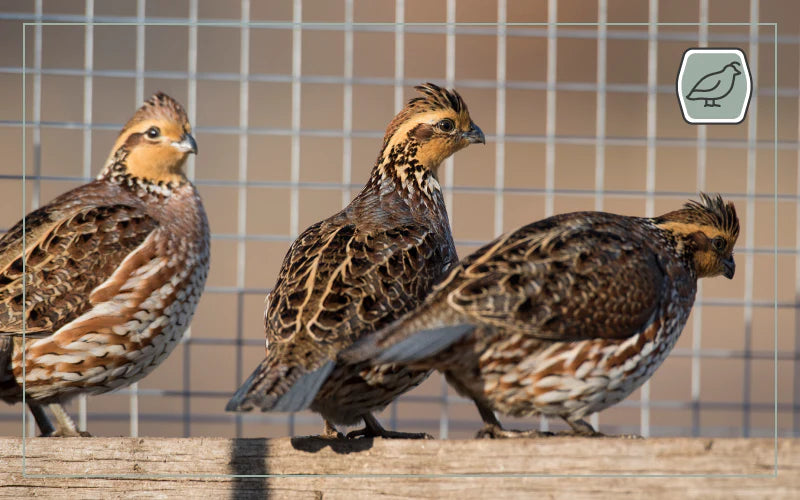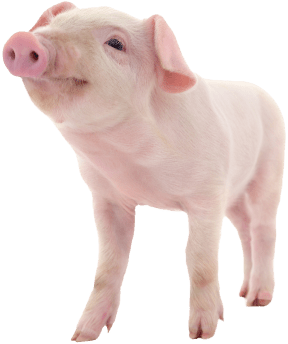
The Complete Guide to Game Bird Housing
|
|
Time to read 3 min
 You are being redirected to QC Supply Pharmacy, where you’ll find a wide selection of high-quality prescription and pharmaceutical products for animals of all sizes.
Enjoy the same great service and expertise you trust from QC Supply.
Click below to continue shopping.
Continue
No thanks, stay on the main site
Powered by
You are being redirected to QC Supply Pharmacy, where you’ll find a wide selection of high-quality prescription and pharmaceutical products for animals of all sizes.
Enjoy the same great service and expertise you trust from QC Supply.
Click below to continue shopping.
Continue
No thanks, stay on the main site
Powered by


|
|
Time to read 3 min
If you’re considering raising game birds, you probably have a long list of things to consider. One of the most important things on that list is understanding how to house them.
Housing is one of the fundamentals of raising game birds. Proper shelters protect your flock from predators and ensure their health and productivity. This article explores various game bird housing options, from brooders to flight pens, with practical tips and crucial considerations like predator-proofing.
Brooders are essential for the initial stages of a game bird's life, providing a warm and safe environment for chicks at the most vulnerable stage of their lives. Typically, these are smaller, enclosed spaces with controlled heating.
Monitor temperature regularly, as young birds are highly sensitive to cold. Within the brooder, ensure sufficient space for the chicks to move around, and install reliable feeder and waterer systems to keep them well-fed and hydrated.
As chicks grow, they require more space to develop properly. Grow-out pens serve this purpose. These pens are larger than brooders and often have outdoor access. While still providing some protection, they allow birds more freedom to move, which is vital for muscle development and overall health. Ensure these pens are secure and have adequate shelter from adverse weather.
Flight pens are crucial for game birds, as they allow them to meet their physical needs naturally. These pens are spacious and typically covered with chicken wire or netting to prevent escapes. The design encourages flying, which is essential for muscle development and preparing birds for release into the wild.
Providing a free-range area can significantly enhance the quality of life for game birds, allowing them to have natural foraging experiences. These areas are often enclosed with wire fencing to protect birds from ground predators like foxes and raccoons. However, their design should also offer protection from aerial predators such as hawks and owls.
Game bird predator-proofing
Predator-proofing is non-negotiable in game bird housing. Fortify all types of enclosures to keep out predators attracted to your birds. Use durable materials like heavy-duty chicken wire or hardware cloth. Pay special attention to the construction of coop and run doors, as these are common entry points for predators.
Game bird housing cleaning and maintenance
Regular cleaning and maintenance of bird housing helps keep your birds healthy and extends the structures' lifespan. Remove waste and spent bedding regularly, and disinfect feeders and waterers to prevent disease spread.
Predator-proofing is non-negotiable in game bird housing. Fortify all types of enclosures to keep out predators attracted to your birds. Use durable materials like heavy-duty chicken wire or hardware cloth. Pay special attention to the construction of coop and run doors, as these are common entry points for predators.
Regular cleaning and maintenance of bird housing helps keep your birds healthy and extends the structures' lifespan. Remove waste and spent bedding regularly, and disinfect feeders and waterers to prevent disease spread.
Effective game bird housing is a blend of security, comfort, and practicality. Whether you are using brooders, grow-out pens, flight pens, or providing free-range areas, each option must be tailored to the specific needs of your birds.
We’ve got everything you need to build well-designed and easy-to-maintain habitats for your flock. Browse the selection now.
Do you have some tips we missed? Drop a comment below. Need further assistance? Give our experts a call today at 888-433-5275.

